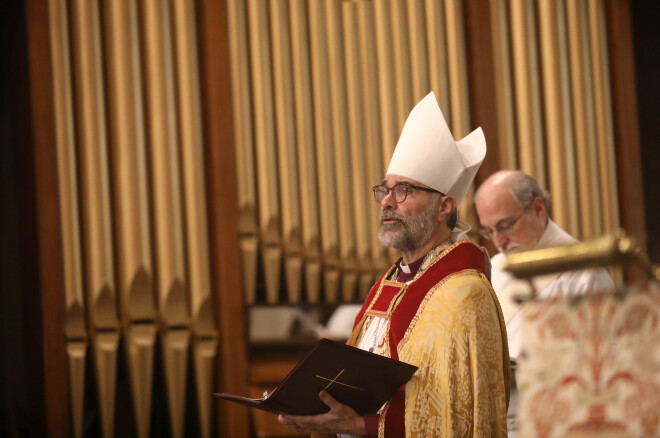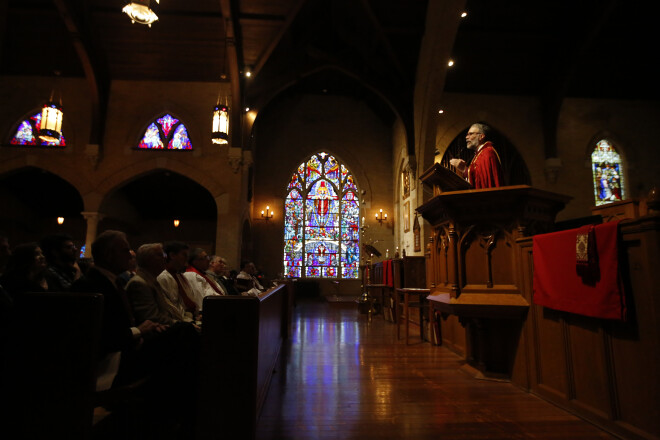Fourfold Cord

I was recently asked to speak to a congregation about the nature of Episcopalianism. As with many topics we do best to begin with reasons to beware of the topic. We are first of all, not members of something called “TEC,” but of the “one, holy, catholic, and apostolic Church” in its wild diversity and shocking division. To be sure the Episcopal Church is the national expression of Anglican branch of that Church catholic. To begin thus with an account of us as “mere Christians” is, ironically, the most Anglican of moves.
Once this has been said Anglicanism, flawed and wounded though it be, displays four persistent features which it does, and should, share with other Churches. Let me mark each with an illustrious name from our history. We are the Church of Bede, the historian of ancient English Christianity. (This corresponds to the catholic strain). By this I mean we are part of a continuous stream of the Church straight back to ancient times.
We are the Church of Cranmer, which claims the Reformation insight of continuously putting Word, cross, and grace at the center. We are also the Church of Crowther, first African bishop and missionary for CMS, a sign that by God's providence we are a global and witnessing communion. By this, I mean we have inherited a share in the global communion of Anglicanism which was the fruit of vigorous missionary and evangelistic effort.
And finally, we are the Church of Coleridge, artist, inquiring spirit, and orthodox Anglican, patron saint of the call faithfully to interrogate our faith. Every church is called to manifest all four in its life.
You might say our faith, personal, local, and communal, always reaches back to apostolic roots, is centered in grace through Christ's sacrifice, reaches out is witness, and looks at itself, all in the interest of lifting all up to God in praise and thanksgiving.
Peace,
+GRS




